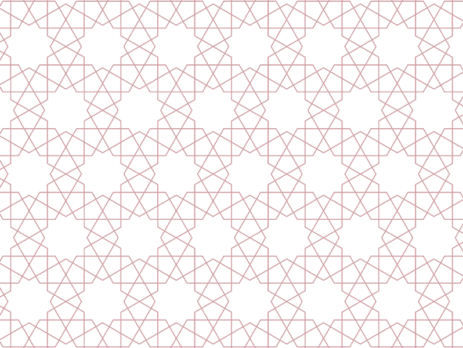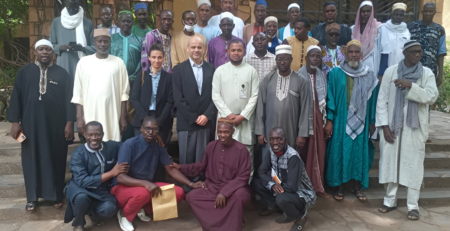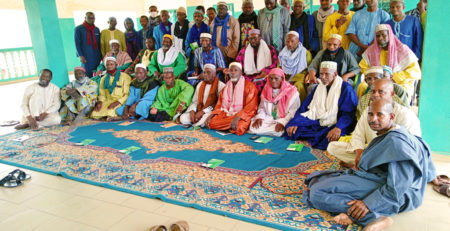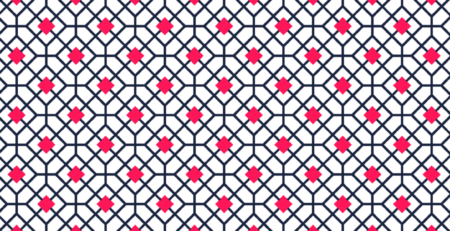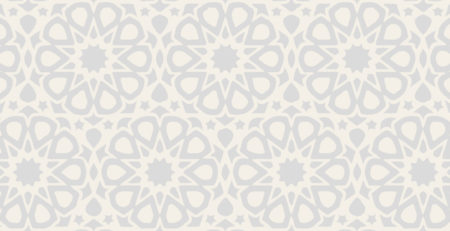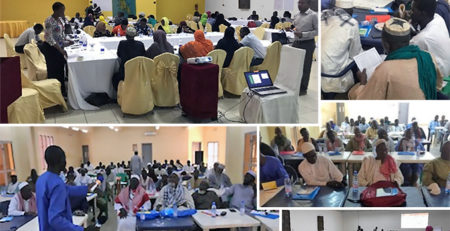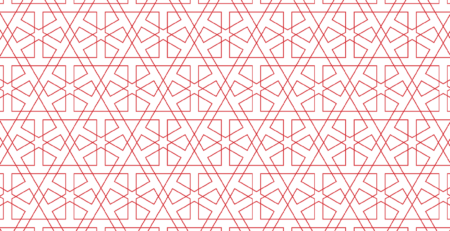The Cordoba Update 25.08-07.09.2015

| In line with the programmes and projects funded by partners of the Cordoba Foundation of Geneva, updates and information are included under the following geographical regions and themes: | |
North Africa:
|
Sahel region:
|
Middle East:
|
Cross-regional:
|
TRANSITION AND POLITICAL PARTICIPATION
Libya, 01-04.09.2015: Leon’s Race against the Clock
After failing to convince the Tripoli-based GNC delegation to attend yet another dialogue round of talks in Morocco in late August, Leon found himself compelled to request a meeting with a larger group of the GNC parliamentarians in Istanbul ahead of the Geneva round. The Istanbul meeting discussed ways to include the GNC’s amendments in the draft political agreement, and not only in the annexes as Leon and the Tobruk-based MPs had offered until now. The revamped delegation of the GNC that was dispatched to the Geneva talks included Abderahman Swihli, leader of the Unity for Homeland party and a figure close to a very influential Misrata armed group. The message to Leon was clear. Leon has been attempting for few months now to undermine the position of the GNC, by trying to cause a split among the Misrata groups that are one of the strongest allies of the GNC. Nouri Bousahmin, Speaker of the GNC, sent a strongly-worded letter to Leon in which he denounced UNSMIL’s repeated attempts to bypass the GNC and its dialogue delegation in order to seek meetings directly with leaders of armed groups or local councils in the west of Libya. Back in Tripoli, the delegation announced that discussions in Geneva were constructive and that Leon had shown readiness to include the amendment’s in the body of the draft agreement text rather than the annexes. Leon is in a race against the clock as the deadline set to form a unity government is 20 September, which would leave just a month before the mandate of the Tobruk-House of Representative ends on 20 October. In Tripoli, there is already talk of a post-Leon phase with media reports of the possible replacement of Leon by a German ambassador. Some analyst think that Leon has wasted time since he was appointed UN envoy, a year ago, by ignoring the GNC, and it is only in the last few months that he has started to recognise that the GNC is essential in any political agreement. In a related development, Ali Tarhouni, head of the Constitution Drafting Assembly, said in Tunis last week that the draft constitution is about to be finalised and would be ready for referendum if a unity government is formed on 20 October.
Links for more information:
http://www.alaraby.co.uk/english/politics/2015/9/3/libya-slips-further-into-chaos-as-impasse-drags-on
https://www.facebook.com/616282578414521/videos/vb.616282578414521/976785335697575/
http://unsmil.unmissions.org/Default.aspx?tabid=3543&ctl=Details&mid=6187&ItemID=2099229
http://www.marsad.ly/en/draft-constitution-to-be-ready-by-20-october-tarhouni/
http://www.marsad.ly/en/abu-sahmain-reacts-to-leons-meetings-with-army-officers/
Morocco, 04.09.2015: The JDP’s not so Surprising Victory
Unlike previous elections before the 2011 Constitution, the electoral campaign in the run up the local and regional elections, last week was very heated and energetic. The ruling Justice and Development party and opposition political parties fought the local elections as if they were legislative ones. For the JDP and observers, the 4 September elections were considered a vote of confidence in its performance since it came to power in 2011. The JDP came third in the local municipality elections with 15%, after the Istiqlal Party (16%), and the Authenticity and Modernity Party (PAM) that came first with 21%. The JDP’s performance is very positive according to the party statement in that it increased its presence by more than four times compared to the last local elections, before 2011. In fact, when taken in terms of proportion to number of candidates put forward by each party, the JDP has fared pretty well. In the regional elections, the JDP dominated all other opposition parties with 25.66% (174 seats), ahead of PAM with 19.47% (132 seats), Istiqlal party with 17.55% (119 seats). JDP’s victory has a psychological aspect as well, in that it defeated three out of four of the leaders of the main opposition parties in their strongholds. This was the case of Hamid Chabat, secretary general of Istiqlal party (Fes) and Mustapha Bakkoury of PAM (Mohammédia), as well as the leader of Constitutional Union in Casablanca. The JDP dominated large towns such as Casablanca, Rabat, Tanja, Fes, Meknes, Agadir, and even Marrakech. Observers think that the JDP’s policies as far as extending health insurance coverage, raising students’ bursaries, reform of retirement and pension funds, and other welfare programmes contributed to the party’s victory, and place it at a good starting point for the legislative elections in September 2016. It is worth mentioning, however, that the Democratic Leftist Federation, which comprises key groups of the 20 February Movement, has also fared well.
Links for more information:
http://telquel.ma/2015/09/08/nabila-mounib-refusons-alliance-pjd
http://www.pjd.ma/fr
http://www.sasapost.com/moroccan-municipal-elections/
Tunisia, 03.09.2015 : Tensions over the Proposed Law for Economic Reconciliation
President Baji Caid Essebsi’s proposed law for economic and financial reconciliation has stirred up the political and civil society landscape in Tunisia. Maya Jeribi, secretary general of the Al Joumhouri party considered it a “law for reconciliation and corruption laundering”. Four other leftist and centre parties (Ettakattol, Courant démocratique, l’Alliance démocratique and Mouvement du Peuple) called for a rally on 12 September in order to protest against the draft bill of law. The leftist opposition Popular Front party has also taken a strong position against the draft bill and participated in the protests last week, which were fiercely repressed by the police. Mongi Rahoui, a Popular Front MP told a local radio “the opposition is ready to breach the state of emergency and hold marches everywhere against the law for economic reconciliation.” The opposition fears that the proposed law would not only be used to clear corrupt businessmen of charges and bring them back into the system, but also render void any results of the Truth and Justice Committee. On the other hand, supporters of the proposed law say the measure is necessary in order to unfreeze capital that is needed to re-dynamise the economy. Ennahdha’s position remains ambiguous in this debate. In various statements and opinion pieces, figures of Ennahdha have said that a balance should be struck between economic development needs and transitional justice. The proposed law is another challenge for Ennahdha, as large segments of its youth base are restless. They do not understand why Ennahdha would support such a law that goes contrary, they think, to safeguarding the objectives of the 2011 revolution. A spokesperson for the presidency said that the upcoming 12 September opposition rally would be banned due to the state of emergency. Human rights NGOs fear that the police has resumed its old practices including torture and that the anti-terrorism law, passed recently, is being used to crack down on liberties rather than to fight terrorism.
Links for more information:
http://kapitalis.com/tunisie/2015/09/05/tunisie
http://kapitalis.com/tunisie/2015/09/04/reconciliation-economique
http://kapitalis.com/tunisie/2015/09/03/reconciliation-economique
http://nawaat.org/portail/2015/09/01/terrorism-and-ict
RELATIONS BETWEEN COMMUNITIES OF DIFFERENT ETHNIC AND CULTURAL AFFILIATION /
RELATIONS ENTRE COMMUNAUTÉS DE DIFFÉRENTES AFFILIATIONS ETHNIQUES ET CULTURELLES
Mali, 06.09.2015: Retrait des Forces de la Gatia
Dimanche 6 septembre, les troupes armées du Gatia (Groupe d’autodéfense touareg Imghad et alliés) ont annoncé leur retrait d’Anéfis, localité au sud de Kidal qu’ils occupaient depuis le 17 août après des combats avec la CMA (Coordination des mouvements de l’Azawad). Les combats avaient été menés en violation de l’accord pour la paix et la réconciliation signé ce printemps. Avant tout retrait, la Gatia avait exigé que la Mission de l’ONU au Mali, la MINUSMA, assurât la sécurité des populations d’Anéfis. Puis, elle a annoncé dimanche 6 septembre sa décision de se retirer tenant compte de la demande du président Ibrahim Boubacar Keïta et de la communauté internationale.
Liens pour plus d’informations :
http://maliactu.net/nord-du-mali-ebauche-de-retrait-des-groupes-armes
http://maliactu.net/mali-laccord-pour-la-paix-les-feuilles-mortes-du-nord/
http://www.studiotamani.org/index.php/politique/5019
http://www.studiotamani.org/index.php/magazines/5018
http://www.reuters.com/article/2015/08/18/us-mali-violence
RELATIONS BETWEEN MUSLIM COMMUNITIES WITH DIFFERENT RELIGIOUS REFERENCES /
RELATIONS ENTRE LES COMMUNAUTÉS MUSULMANES DE DIFFÉRENTES AFFILIATIONS RELIGIEUSES
Bahrain, 28.08.2015: Explosion Kills a Police Officer
An explosion in Bahrain that was described as a “terrorist blast” by the interior ministry killed one police officer and wounded seven other people. The information minister said the explosives used in the attack were “very similar” to that seized by authorities last month which “came from Iran”. In July Bahraini authorities declared they had foiled an attempt to smuggle weapons from Iran. A few days later a bomb killed two police officers in Sitra, south of Manama. The police said that the suspects were connected to Iran’s Revolutionary Guard as well as the Lebanese Shia Hezbollah group.
Bahrain, ruled by the Sunni Al Khalifa monarchy, has long accused Iran of stirring up unrest among its Shi’ite population. The tensions between the two countries rose in July, with Bahrain recalling its ambassador from Tehran on 25 July.
Links for more information:
http://www.aljazeera.com/news/2015/08/bahrain-police-officer-killed-terrorist-blast-150828201955944.html
http://english.alarabiya.net/en/News/middle-east/2015/08/28/Bahrain-security-officer-killed-in-bomb-attack.html
http://www.reuters.com/article/2015/07/28/us-bahrain-security-blast-idUSKCN0Q20HJ20150728
http://www.theguardian.com/world/2015/jul/28/bahrain-police-officers-killed-bomb-attack
Kuwait, 30.08.2015: Iran is “True Enemy” of Gulf Arabs, says Kuwaiti MP
In the context of a resurgence of a dispute linked to an off-shore gas field located on the continental shelf between Kuwait, Iran and Saudi Arabia, and after the latest bomb attack in Bahrain on Friday 29 August, Hamad al-Harashani, the head of the Kuwaiti parliament’s foreign relations committee said that “it has become clear to all that Iran is an enemy plotting to swallow up our states and resources and is the true enemy of the region”. It is the strongest criticism against Iran in this state that has traditionally had good relations with its neighbour.
The resumption of the dispute on the Dorra field follows reports that the Iranian National Oil Company had issued a publication for investment opportunities in Iranian oil and gas fields, including in parts of the Dorra field.
Links for more information:
http://www.reuters.com/article/2015/08/26/us-energy-kuwait-iran
http://me-confidential.com/10514-kuwait-iran
http://tribune.com.pk/story/947657/iran-is-true-enemy-of-gulf-arabs
Kuwait, 01.09.2015: 24 Suspects charged with Illegal Possession of Arms and Furtive Contacts with Iran and Hezbollah
After the discovery of a huge arms cache in August, the Public Prosecution referred to court 25 Kuwaitis and 1 Iranian. 24 people were charged, some of them accused of “joining Hezbollah and urging others to be part of the group that seeks to spread principles aiming to illegally undermine the foundations of the state and forcefully shake-up the social and economic system in the country”.
Links for more information:
http://www.kuna.net.kw/ArticleDetails.aspx?id=2458229
http://www.alaraby.co.uk/english/news/2015/9/1/kuwait-charges-24
Yemen, 3.09.2015: Les Divisions Historiques Nord-Sud Se Ravivent
Plus d’un mois après que les Houthis ont été chassés d’Aden, les ressentiments grondent à l’égard d’un gouvernement qui n’est toujours pas revenu. Dans ce qui a été la capitale de la République démocratique populaire du Yémen avant l’unification, le drapeau yéménite ne vole plus. Il est plutôt assimilé au symbole des ennemis, celui des Houthis venant du nord et de leur allié l’ancien président Saleh, également originaire du nord. C’est l’ancien drapeau sudiste que l’on peut voir à sa place, accompagné de temps en temps du drapeau des Emirats arabes unis ou de celui de l’Arabie saoudite.
Le président Hadi en exil à Riyadh, dont il n’est toujours pas revenu, semble manquer de soutien parmi les forces qui ont résisté aux Houthis.
Liens pour plus d’informations :
http://www.wsj.com/articles/yemens-unity-frays-in-leaderless-aden
The views and perspectives contained in the Weekly Update are from individual contributors and external sources, and do not necessarily reflect the opinions or position of the Cordoba Foundation of Geneva. The links are neither intended as an endorsement of particular publications nor the only source for the updates, but to connect to information in the public domain, for those interested in background or further details.





